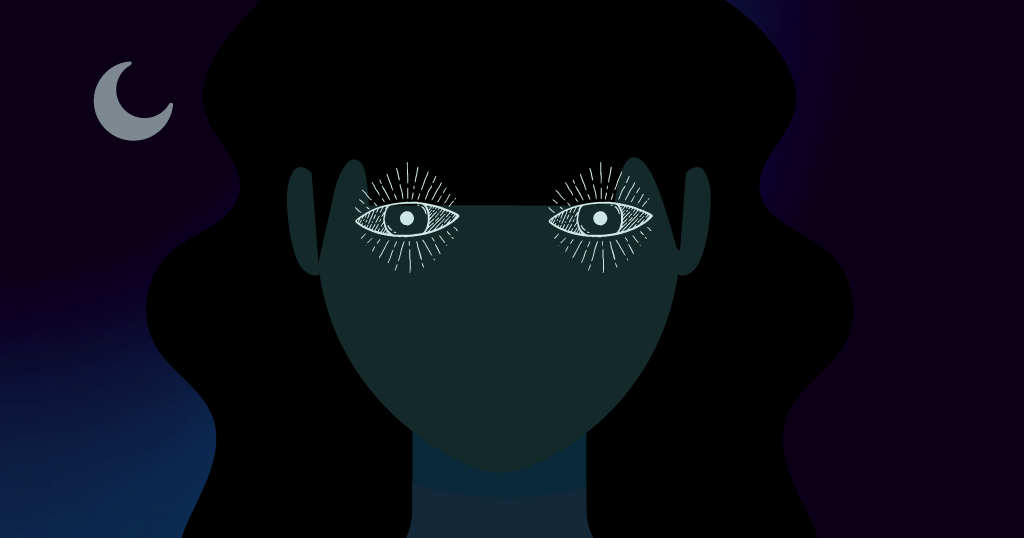(Last updated April 2023 — Now there are 10!)
Highlights of my spaciest years included giving the wrong last name when called on in class, and almost getting my head wedged between two floors of a department store while riding the escalator.
I experienced a big improvement after I went gluten-free, and I eventually I could face a big project and a tight deadline without sweating it too much, given enough Pepsi. However, over the years that effect eroded, and you really can’t handle all that sugar with any dignity in your 40s and beyond. My search continued.
Here are the solutions I found, in order of discovery. I’ve added three items since I originally wrote this so the article title no longer makes sense. My initial experiments were in nutritional therapy, since I assumed my gluten intolerance was due to celiac disease, and celiac is associated with many deficiencies.
1. High histamine, caused at least in part by . . .
2. Low iodine
I discovered this by accident when I was working day and night on a project while playing host to a cold. Out of desperation I started mainlining vitamin C — something like 1,000 mg an hour, all day. After two days of that I realized I was thinking a lot better than normal.
After some research I discovered that:
- vitamin C lowers histamine
- that in some people histamine is too high all the time, and not always with allergy-like symptoms
- and that histamine occurs naturally in food, some much more so than others.
Now I finally had part of the answer as to why certain foods had recently started making me spacey: eggs, rice, large amounts of protein, kimchee.
The second part of the question was why I had it now, when I hadn’t before. An uncorrected, and thus steadily worsening, iodine deficiency would explain it. According to some experts, it is rampant now that we avoid iodized salt, which in the US is iodized. Insufficient iodine will cause a rise in histidine, which the body converts into histamine. (See my posts on my very long iodine experiment.)
Another theory was that I wasn’t making enough of a certain enzyme, amylase, that breaks down carbs. Which with a recovering celiac’s innards wouldn’t be surprising. I had no luck with amylase supplements, though.
3. Leaky gut
A damaged gut can cause dairy to be only partially broken down, and it so happens that some of those only-partially-broken-down particles happen to be in the form of opioids, as in opium, which then escape into the bloodstream and make you loopy. I discuss this in my post on how I repaired my gut.
4. Iron deficiency
I was never able to get my iron levels up to ideal numbers until I found beef spleen supplements. They helped my fatigue levels astoundingly in a matter of six days, and gave me a little more mental stamina, but not as much as I’d hoped.
5. Folate deficiency
Folic acid, a type of folate supplement, never did much for me so I never investigated it very far. When I learned that it’s not a very efficient form of folate, I tried the superior form, methylfolate, and discovered that large doses made a noticeable difference in my ability to concentrate.
However, at a certain amount — which sadly is also the amount that makes my fingernails look really, really good — it made me really spacey, which felt like elevated histamine. I am not clear on what that was. My understanding is that unmethylated folic acid can raise your histamine if you’re a poor methylator, but that methylfolate would not. I really don’t know.
6. SAD (Seasonal Affective Disorder)
For years, if I didn’t use my high-intensity lamp — aka a bright light therapy lamp — from mid-October to April, I would turn into a zombie, eat everything in sight, and stop sleeping. And think thoughts that made me look around for Hank Williams.
I thought for a long time that once I got my vitamin D3 levels up, this would be resolved, but no luck so far. It is much better, however, now that I’ve moved to a lower latitude.
7. Insufficient essential fatty acids (EFAs)
I latched onto these after realizing that whenever I had a huge piece of salmon for a meal, I would feel much more competent the next day. I got tired of eating salmon so I began experimenting with essential fatty acids, which salmon is famous for. The supplements helped a lot for about a year, then made my insomnia worse. Then they started giving me scary headaches as well as total insomnia.
8. A fried nervous system
After five months of sessions with a Somatic Experiencing practitioner, and many months doing the related exercises, my stress level was significantly reduced and my stress tolerance was way up.
It is referred to as a trauma therapy, but I think that word freaks people out, so I prefer fried nervous system therapy. It is not talk therapy.
Here’s a quote from an L.A. Times article on generational trauma in first-generation Latinos that discusses the problem with the word “trauma.”
“Stress” could be a more appropriate word than “trauma,” some experts said. They cite the Substance Abuse and Mental Health Services Administration which defines trauma as an event, series of events, or set of circumstances that is experienced by an individual as physically or emotionally harmful or life threatening and that has lasting adverse effects.
“Trauma is a heavy-hitting word,” said [Manuel Zamarripa, director and co-founder of the Institute of Chicana/o/x Psychology].
He added: “In our effort to educate, we don’t want to promote or perpetuate a narrative that we’re just walking around as individuals that are significantly damaged or traumatized.”
9. Chocolate
Yep. I quit chocolate, a habit I started in junior high school after being hooked by band members selling huge $1.00 bars. (It was the Eighties.) Six weeks later I noticed that my appetite had improved markedly and my thoughts were amazingly … tidy.
10. Exercising wrong? Lack of nature?
Soon after quitting chocolate, I abandoned my usual morning routine of walking 40 minutes in the local park. I couldn’t sleep if I didn’t do it, but it also made me irritable, had become a chore, and I had not noticed any increase in stamina in five years.
Instead I started walking 90 minutes in a larger local twice or three times a week. Wow, what a difference. On the first two walks, I swear I could feel my brain knitting together.
Now I’m also finally seeing improvements in my stamina. On the first walk, I began slurring my words from fatigue after about 40 minutes and when I was halfway home I realized I really should not have been driving. The next walks were easier. It took months for my feet to stop hurting, however.
Please note that there are multiple aspects to this change.
- The difference in duration.
- I don’t walk fast anymore. I amble.
- Usually I am blabbing non-stop with a companion.
- Each day is in another park. Beautiful, huge parks. With herons, cranes, vultures, and coyotes.
- I feel safe in the parks. Except for the rattlesnakes. And the skunks. And the geese.
- I get a lot of bright daylight on my eyes.
Whether you could get the same results with 90 minutes on a treadmill in your basement, I do not know.
Other investigations
Other deficiencies I looked at in my brain fog investigation were vitamin B12, zinc, and calcium and magnesium. The last two were among my very first self-experiments in nutritional therapy and once I got those levels up to normal, I experienced reduced jitteriness and listlessness. That made it easier to concentrate. The other items did not seem to be involved.
I also tried a lot of digestive enzymes. No luck.
I also spent almost a year rotating anti-fungal herbs such as garlic and grapefruit seed extract, on the theory that a candida overgrowth was causing the brain issues. I do not remember any improvement, but the common wisdom at the time was that you had to throw 20 things at it and maintain a hellaciously restricted diet for a year. I finally concluded that a lot of it was made-up bullshit advice. At my most diplomatic, I’d say that at the time there was no decent treatment.
Best theory I ever heard
My aunt’s reply when I mentioned this problem: “Maybe you’re just not as smart as you think you are.” Thanks!
When this content was posted
The content on this page was published in August 2011 and updated in April 2023.





I’m trying methyl folate for the first time and it’s making my nails grow like weeds! BUT My brain is also feeling loopy and borderline depression with it so…. I think I’ll try your vitamin C tip before giving up on it, thanks!
Jess: You might look at the comments on this post. One commenter said, “… methyl-b12 taken the same day as methylfolate makes my mood PERFECT.” Also check out mthfr dot net if you haven’t already.
@Marjorie, unfortunately due to my anemia I’ve been taking B12 and iron and B’s ( somewhat high doses) and all the other regular stuff for the past year or so pretty consistently. The vitamin C has been in token amounts though. I do notice my allergies are way down with the methylated folate, but not taking only methylcobalamin. Otherwise my pill stack has been consistent (I think…)
I’ve gone through that guy’s site before. He is probably right about a few things, but I don’t like his anecdotal observations on his kids as his science to sell :shrug:
Thanks for letting me know about the mthfr site. I haven’t looked at it in several years. Another thought: when my zinc levels get too low my mood suffers, and iron and folate both compete with zinc.
I got the scary brain fog, that lasted a week and felt like Dimensia… and took a mega-b 100 and it cleared in a few hours. You mention folate, at the time I thought it must be Thiamine that fixed it. Anyways what you said looks right.
On the Accutane comment, I tried mega-a,e,d… and got some light headedness for a couple of hours. And then these vitamins normalize after 4 hours. I think the Vitamin A thing, is annoying but a lot different than B deficiency.
Vitamin C also helps the body absorb iron. I found I was testing as anemic but I actually had to much iron in my system, my body wasn’t absorbing it, but vitamin c helped it to do so
I really relate to your article and suspect some of my issues are due to high histamine. I get loopy and brain fog while taking digestive enzymes, you mention that in the article, did you notice that too? Thanks for reminding me about vitamin C.
I don’t recall digestive enzymes going that for me, but then I could never take them for more than a few days because they stopped me sleeping. Milk thistle does, but I don’t think it’s used in many digestive enzyme products.
What doses of Iodine, vitamin C, Iron and L methylfolate did you take that improved your brain fog?
Susie: According to my iodine diary, I didn’t notice brain fog lessening until 100 mg. (That’s mg, not mcg.) However, I also wasn’t taking enough selenium with it, which probably would have made the iodine more effective at a lower dose. Vitamin C helped only when the brain fog was due to high histamine. It didn’t work below 6,000 mg, but more than that didn’t work better. Iron: between 25 and 65 mg. Methylfolate: I think I started at 2400 mg.
I was among the unfortunates who took Accutane. It has certainly caused brain fog for me and for some outright psychosis. B12 and iron have helped. Gluten free has helped. Huge difference between folic acid and L Methylfolate. Folic acid is a man made supplement and can really add to the fog.
That’s sounds like scary stuff. Another reader mentioned that finasteride (Propecia) can cause debilitating brain fog, too.